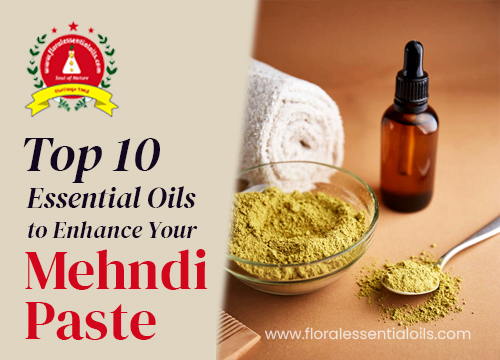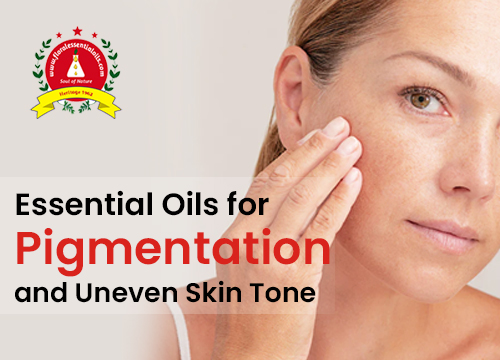In today’s world, our bodies are continually exposed to toxins from the air we inhale, the food we consume, and the products we use daily. These toxins can accumulate in our systems over time, leading to health issues such as fatigue, digestive problems, skin breakouts, and a weakened immune system. While detoxing has become a popular trend, the process of cleansing your body doesn’t have to involve harsh chemicals or expensive treatments. Essential oils offer a natural, gentle, and effective way to detox your body and promote overall wellness.
For centuries, essential oils have been valued for their therapeutic and healing benefits. They contain potent plant compounds that can aid in detoxification by supporting the body’s natural processes, improving circulation, boosting immunity, and enhancing digestion. This blog will explore the best essential oils for detox, their benefits, and how you can incorporate them into your daily routine for a healthier, cleaner life.
How Essential Oils Help with Detoxification?
Detoxification is the body’s natural process of eliminating harmful substances, primarily through the liver, kidneys, skin, and lungs. Essential oils support these organs in different ways by stimulating circulation, promoting the elimination of waste, and enhancing digestive function.
In addition to helping the body cleanse itself, many essential oils possess antimicrobial, antiviral, and anti-inflammatory properties, helping to protect against harmful pathogens and environmental toxins. By incorporating essential oils into your daily routine, you can support the body’s natural detox pathways and feel rejuvenated.
Best Essential Oils for Detoxification
-
Lemon Essential Oil
Lemon essential oil is one of the most popular oils for detox. It is rich in antioxidants and vitamin C, which help support liver function and the removal of toxins. This refreshing oil promotes healthy digestion, boosts metabolism, and has a mild diuretic effect, which helps the body flush out waste through urination.
Key Benefits:
Stimulates liver detoxification
Enhances metabolism and digestion
Acts as a natural diuretic to support kidney function
How to Use:
Add a drop of lemon oil to a glass of warm water each morning to kickstart your metabolism and promote liver detox.
Diffuse lemon oil in your home to create a fresh, invigorating atmosphere while purifying the air.
-
Grapefruit Essential Oil
Grapefruit essential oil is widely recognized for its ability to aid the lymphatic system, an essential component of the body’s detoxification process. It helps the body eliminate excess fluid, reduces bloating, and supports weight management. Grapefruit oil also stimulates the liver, promoting the breakdown of fats and toxins.
Key Benefits:
Supports lymphatic drainage and detox
Reduces bloating and water retention
Stimulates fat metabolism and promotes weight loss
How to Use:
Dilute grapefruit oil with a carrier oil and apply it to your stomach and thighs to reduce water retention.
Use a diffuser to enjoy the energizing and detoxifying benefits of grapefruit oil throughout the day.
-
Juniper Berry Essential Oil
Juniper berry oil is a powerhouse for detoxification. It helps cleanse the kidneys and liver by stimulating the removal of waste and toxins from the body. This oil is also beneficial for reducing inflammation and soothing digestive issues like bloating and indigestion
Key Benefits:
Promotes kidney and liver detoxification
Relieves bloating and digestive discomfort
Supports the body’s natural cleansing processes
How to Use:
Add a drop of juniper berry oil to water or a carrier oil to promote kidney health and reduce bloating.
Apply juniper oil topically to areas where you experience water retention or digestive discomfort.
-
Peppermint Essential Oil
Peppermint oil is well-known for its ability to soothe digestive issues and support liver health. It stimulates bile production, which helps in fat digestion, and relieves symptoms such as bloating, nausea, and indigestion. Peppermint oil also has a cooling effect, which can help relieve headaches that often occur during detox.
Key Benefits:
Enhances liver function and bile production
Eases digestive discomfort, such as bloating and nausea
Promotes mental clarity and refreshes the senses
How to Use:
Add a drop of peppermint oil to your water or tea to help improve digestion.
Massage diluted peppermint oil onto your abdomen to relieve bloating and digestive issues.
-
Eucalyptus Essential Oil
Eucalyptus oil is known for its cleansing properties, particularly for the lungs. It helps detoxify the respiratory system by clearing congestion and improving airflow. Eucalyptus oil also has antimicrobial properties that can help fight infections, promoting better overall health.
Key Benefits:
Clears toxins from the respiratory system
Supports immune function
Promotes relaxation and reduces stress
How to Use:
Inhale the steam of eucalyptus oil by adding a few drops to hot water to clear your sinuses and detoxify your lungs.
Diffuse eucalyptus oil to purify the air in your home and improve respiratory health.
-
Cilantro Essential Oil
Cilantro oil is a powerful detoxifier that helps remove heavy metals and toxins from the body. It supports liver function and aids in digestion, making it a great addition to any detox routine. Cilantro oil also improves gut health and reduces inflammation, promoting overall wellness.
Key Benefits:
Binds to heavy metals and toxins for easy elimination
Promotes digestion and gut health
Reduces inflammation and supports liver detox
How to Use:
Dilute cilantro oil with a carrier oil and massage it onto the abdomen to support digestion and detoxification.
Add a drop of cilantro oil to your water to promote liver health (consult with a healthcare provider before ingesting essential oils).
-
Lavender Essential Oil
Lavender oil may not be the first oil that comes to mind for detox, but its ability to reduce stress and promote relaxation makes it an important part of any detox routine. When the body is stressed, detoxification is less effective. Lavender oil helps the body relax, enhancing detox processes and supporting overall health.
Key Benefits:
Reduces stress and anxiety
Supports the body’s detox processes
Promotes better sleep, which is essential for detoxification
How to Use:
Diffuse lavender oil in the bedroom to improve sleep quality and support your body’s detox processes overnight.
Add a few drops of lavender oil to your bath to relax and unwind after a long day.
How to Integrate Essential Oils into Your Detox Routine?
Essential oils are versatile and can be used in a variety of ways to support detoxification. Here are some simple methods to integrate them into your daily life:
Aromatherapy (Diffusion): Diffusing essential oils is one of the easiest ways to enjoy their detoxifying benefits. Lemon, eucalyptus, and peppermint oils can purify the air and support the respiratory system, while lavender oil can help reduce stress and promote relaxation.
Topical Application: Apply diluted essential oils directly to your skin to support detoxification. Focus on areas like the abdomen, feet, or legs where toxins accumulate. Always dilute essential oils with a carrier oil to avoid skin irritation.
Inhalation: You can inhale essential oils directly from the bottle or use steam inhalation. This method helps clear your sinuses, detoxify your lungs, and promote deep breathing.
Internal Use: Some essential oils, such as lemon and cilantro, can be ingested to support internal detoxification. However, it is important to always consult with a healthcare professional before ingesting any essential oil.
Conclusion
Detoxifying your life with essential oils is a simple and effective way to promote overall health and wellness. From supporting liver function and improving digestion to detoxifying the respiratory system and reducing stress, essential oils provide a natural, holistic approach to cleansing the body. By incorporating oils like lemon, grapefruit, juniper berry, and peppermint into your daily routine, you can support your body’s natural detox processes and feel revitalized.
Remember to use essential oils with care always dilute them before applying topically, consult a healthcare provider before ingesting them, and choose high-quality, pure oils for the best results. By adding essential oils to your detox routine, you can enjoy a healthier, more vibrant life.













